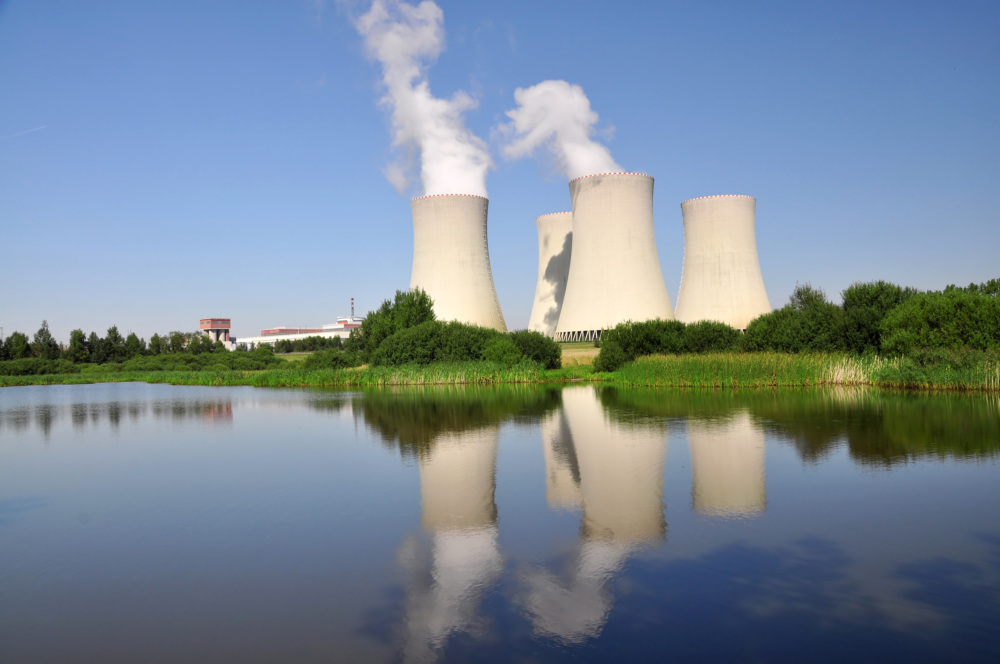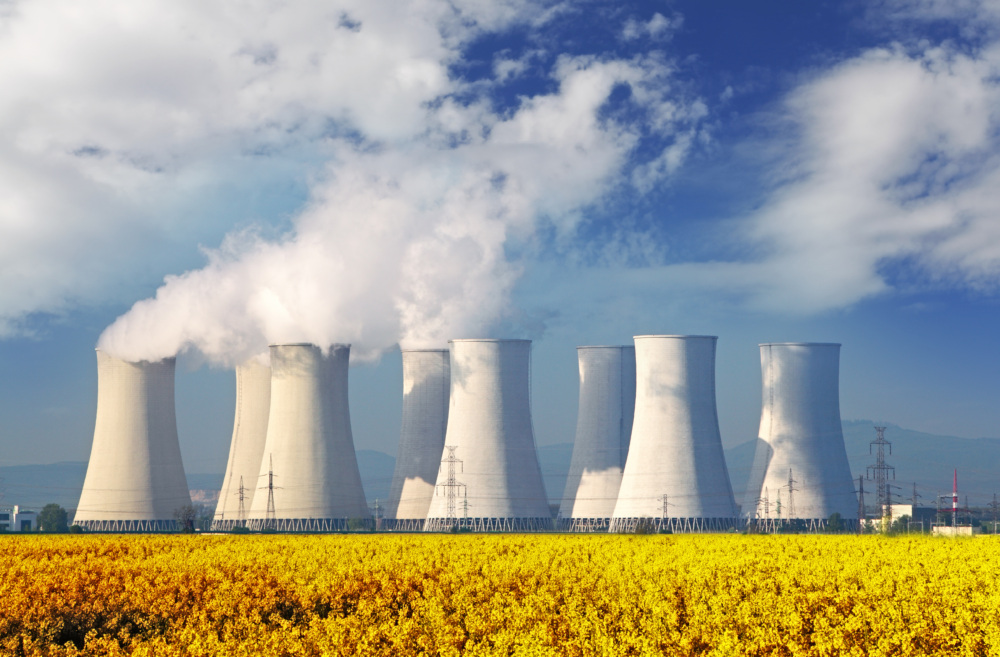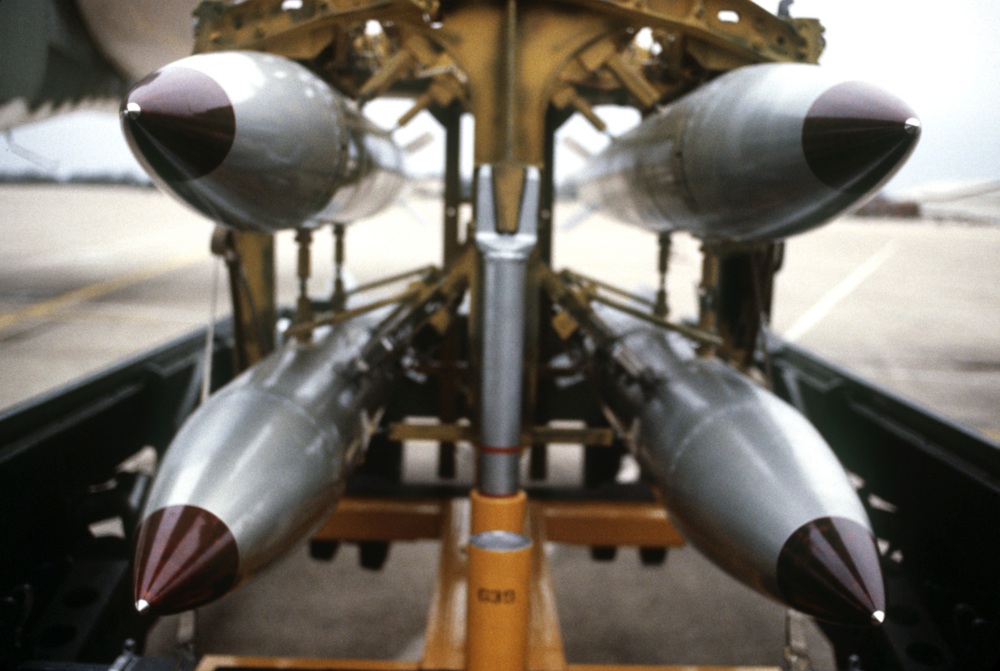
Sam Nunn
Co-Founder and Co-Chair, NTI
Sam Nunn
Co-Chairman, Nuclear Threat Initiative
50th IAEA General Conference Special Event
New Framework for the Utilization of Nuclear Energy in the 21st Century: Assurances of Supply and Nonproliferation
Thank you. I applaud Director General ElBaradei for marking the 50th General Conference by hosting this Special Event to discuss ways to guarantee nuclear fuel supply. From my perspective, this is a matter of great urgency. I hope that this session will point the way to realizing the full potential of the IAEA to support the Nuclear Nonproliferation Treaty’s assurances of access to nuclear technology.
I have come to Vienna to make a proposal.
In my 24 years experience in the U.S. Senate, I learned that proposals are often judged as much by who proposes them as by the substance they contain. So first, let me give you some brief background about my beliefs and those of the organization, the Nuclear Threat Initiative (NTI), which I represent.
NTI is a charitable organization dedicated to reducing the threats from nuclear, biological and chemical weapons. We founded NTI five years ago because we believed that there was a dangerous and growing gap between these threats and our response – and that governments were not doing enough to close the gap.
NTI is governed by an international board of directors with members from China, France, India, Japan, Jordan, Pakistan, Russia, Sweden, the United Kingdom and the United States. It is a place where leaders with different perspectives and experience come together to find common ground – and act on a common vision of global security. From its inception, NTI has sought to lead by example and foster increased efforts by governments to counter nuclear dangers.
Our goal at NTI is to do all we can to reduce toward zero the chance that any nuclear, biological, or chemical weapon will ever be used anywhere — either by intent or accident. We don’t serve the cause of any government or any political agenda. We strive everyday to serve the cause of global security. I dedicate my time and effort to NTI because I am dedicated to its mission.
Our cooperation in nuclear security is being sorely tested today by mounting tensions over the three areas of consensus and commitment that created the NPT and have held it together for nearly 40 years.
None of these commitments exists in isolation. They are mutually dependent and mutually reinforcing. We must make continuous progress in all three areas or we will destroy the mutual trust that is essential for our survival. We are in a race between cooperation and catastrophe and, at this moment, the outcome is unclear.
Today, there is – around the world – a rising interest in using nuclear power to generate electricity. Experts have predicted that energy demand will grow by 50 percent in the next 20 years, and even more in developing countries. As energy needs rise, as oil and gas prices surge, as the pace of global warming increases, nations will look more and more to nuclear power.
As more nations seek nuclear energy, concerns have been raised about the nuclear fuel cycle. The report of the UN High Level Panel on Threats said that, “… the proliferation risks from the enrichment of uranium and from the reprocessing of spent fuel are great and increasing.”
As more nations seek nuclear energy to meet their development needs, more nations will weigh available options to determine what for them will be the most secure, and most economical way to ensure a reliable supply of nuclear fuel.
Some countries will consider building indigenous fuel cycle facilities – a costly choice that would spread these capacities throughout the world and add to the proliferation risks that are inherent to these technologies. Other states will prefer – for economic and security reasons – to import nuclear fuel from other suppliers. I believe it is in our collective security interest to ensure that states have confidence in electing this second path.
A country’s decision to rely on imported fuel, rather than to develop an indigenous enrichment capacity, may pivot on one point: whether or not there is a mechanism that guarantees an assured international supply of nuclear fuel on a nondiscriminatory, nonpolitical basis to states that are meeting their nonproliferation obligations. We believe that such a mechanism can be achieved, and that we must take urgent, practical steps to do so. That is why I am here in Vienna.
Today, I am announcing that the Nuclear Threat Initiative is prepared to contribute $50 million to the IAEA to help create a low enriched uranium stockpile owned and managed by the IAEA. Warren Buffett, one of NTI’s key advisors, is financially backing and enabling this NTI commitment. We envision that this stockpile will be available as a last-resort fuel reserve for nations that have made the sovereign choice to develop their nuclear energy based on foreign sources of fuel supply services — and therefore have no indigenous enrichment facilities.
The goal of this proposed initiative is to help make fuel supplies from the international market more secure by offering customer states that are in full compliance with their nonproliferation obligations reliable access to a nuclear fuel reserve under impartial IAEA control should their supply arrangements be disrupted. In so doing, we hope to make a state’s voluntary choice to rely on this market more secure.
NTI's contribution is contingent on two conditions, provided they are both met within the next two years: (1) that the IAEA takes the necessary actions to approve establishment of this reserve; and (2) that one or more member states contribute an additional $100 million in funding or an equivalent value of low enriched uranium to jump-start the reserve. Every other element of the arrangement—its structure, its location, the conditions for access — would be up to the IAEA and its member states to decide.
In its full expression, we envision a fuel reserve of sufficient size to give current and prospective customer states confidence that they will be able to obtain nuclear fuel in the event their fuel supplies are interrupted. We believe that this reserve must not be so large as to impair the historically efficient and effective operation of nuclear fuel markets. The quantity of low enriched uranium held by the IAEA will have to be determined by supplier states, customer states and the IAEA. We hope that NTI’s contribution combined with the additional $100 million will constitute a credible initial reserve, which must, of course, grow as the nuclear power market grows in the future.
As those who are gathered here know, the idea for a fuel reserve is not new; there has been discussion of it, in some form, for several decades, and it is provided for in the Agency’s statute. NTI’s commitment is intended to help move the discussion from words to deeds. Let me be clear: our proposal is distinct from, independent of, but consistent with other pending proposals. We strongly believe that our concept is essential and workable whether or not any of the other proposals are adopted. It should be evaluated and, we believe, adopted on its own merits.
I hope that we can together create a system of fuel assurances that can provide states confidence that their choice to rely on imported fuel supply will be secure, economical and in their best interest.
We are all here at this conference with a high purpose. We must find new and better answers to the imperative of the nuclear age: how to maximize the value of nuclear power and minimize proliferation dangers. In truth, this challenge is the responsibility of governments, but after decades of debate on this issue, action remains elusive. We believe these dangers are urgent and that is why we at NTI are stepping forward. It is now up to governments to act, and to act decisively.
We are well past the time when we can take satisfaction with a step in the right direction. A gazelle running from a cheetah is taking steps in the right direction. It’s no longer just a question of direction; it’s a matter of speed.
If our decisions and our actions are too slow, can we live with the consequences? Are we prepared to live in a world where dozens of countries have the capability and key ingredients to make nuclear weapons? In such a world, I believe that the dangers we already have today would be greatly multiplied, and there would be a much higher probability that nuclear weapons will be used somewhere in the world. I leave you with these two questions. If in the years ahead, the world experiences a nuclear catastrophe, what would we wish we had done to prevent it? Why aren’t we doing that now?
###
Sign up for our newsletter to get the latest on nuclear and biological threats.
At this critical juncture for action on climate change and energy security, 20 NGOs from around the globe jointly call for the efficient and responsible expansion of nuclear energy and advance six key principles for doing so.
To make good on their COP28 pledge, countries need a new approach to building, regulating, and financing nuclear technology.
Understanding nuclear materials, including how plutonium and enriched uranium are produced, and the basics of nuclear energy and nuclear weapons, is the focus of this tutorial.


